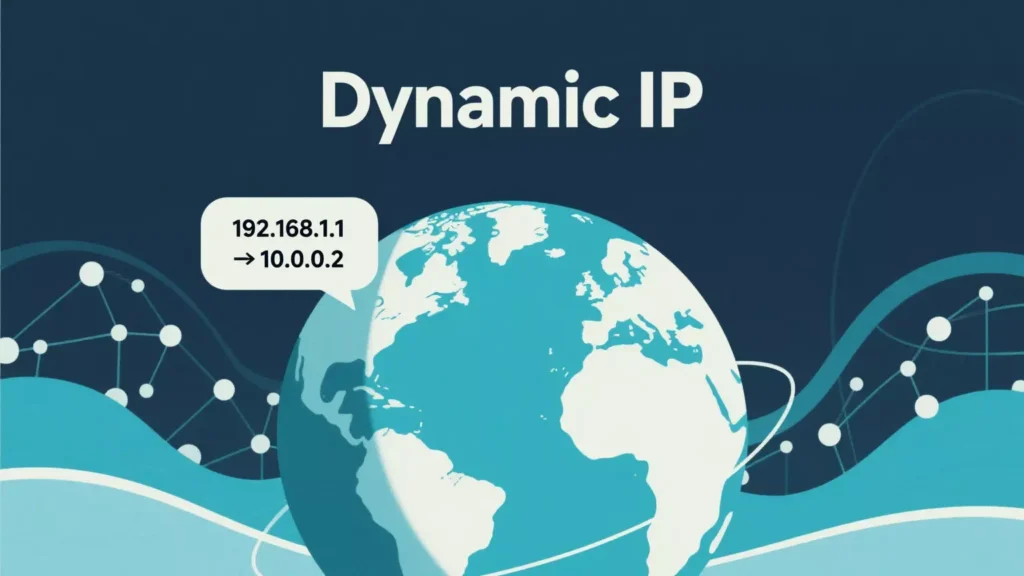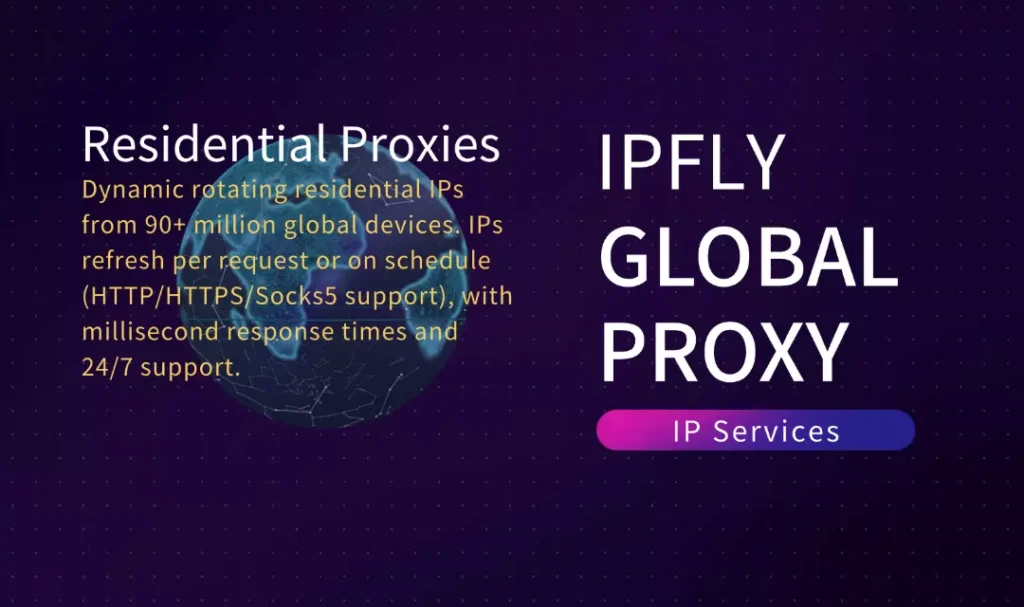In the digital age, IP addresses are the foundation of internet communication. They allow devices to connect, exchange data, and access online resources. While static IPs remain the same over time, dynamic IP addresses change periodically, offering flexibility and security advantages for both businesses and individuals.
This article explains how dynamic IP works, explores its benefits and potential drawbacks, and shares common use cases. It also highlights how proxy solutions can help users take full advantage of dynamic IP technology.

What Is a Dynamic IP Address?
A dynamic IP address is an Internet Protocol (IP) address that changes over time. It’s typically assigned by an Internet Service Provider (ISP) from a pool of available addresses using the Dynamic Host Configuration Protocol (DHCP).
When your device connects to the internet, the ISP assigns an IP address from this pool. After a certain period—often hours, days, or weeks—the address may change automatically, or it may change when the device reconnects.
How Dynamic IP Works
- DHCP Assignment – The ISP runs a DHCP server that manages a pool of available IP addresses.
- Lease Time – Each assigned IP has a “lease time.” Once it expires, the ISP can reassign a new IP to the device.
- Automatic Changes – The device does not need manual reconfiguration; the change is seamless.
Benefits of Dynamic IP
1. Cost-Effective
ISPs often provide dynamic IP addresses at no extra cost, making them ideal for personal users and businesses that don’t require a fixed IP.
2. Enhanced Privacy
Since the IP address changes periodically, tracking user activity over long periods becomes harder for malicious actors.
3. Better Security
Frequent IP changes make it more difficult for hackers to target the same device repeatedly.
4. Simplified Management
Users don’t need to configure their network each time manually; DHCP automates the process.
Drawbacks of Dynamic IP
1. Not Ideal for Hosting
If you run a web server or need remote access to your network, a static IP is usually better since dynamic IPs change.
2. Potential Geo-Blocking Issues
Dynamic IP changes may result in different geographical locations being detected, which can cause login verifications or restrictions.
3. Inconsistent Access
Some online services may block frequent IP changes, causing access issues.
Common Use Cases for Dynamic IP
- Personal Browsing – Great for everyday users who simply need internet access.
- Streaming and Entertainment – Works well for media consumption without static location requirements.
- Security-Conscious Surfing – Users who want to minimize long-term tracking can benefit from IP changes.
- Rotating Proxies for Web Scraping – Businesses can use dynamic IPs in proxy networks to reduce blocking risks.
Dynamic IP in Business Applications

While dynamic IPs are widely used for consumer purposes, they also play a role in business operations. For instance, rotating dynamic IPs can help companies collect market data anonymously or manage multiple social media accounts without triggering anti-bot measures.
IPFLY offers dynamic IP proxy solutions that allow businesses to scale operations, bypass geo-blocks, and maintain security. Their proxy network ensures fast, reliable connections with global coverage, making them ideal for both personal and commercial needs.
How IPFLY Helps with Dynamic IP Solutions
- Global Proxy Network – IPFLY provides dynamic IP addresses from multiple countries, ensuring flexibility.
- High Performance – Their infrastructure is optimized for speed, minimizing downtime during IP rotation.
- Secure Connections – With encryption and privacy measures in place, users enjoy safe browsing and data transfers.
Conclusion

Dynamic IP addresses are an efficient, secure, and cost-effective way to access the internet. They provide enhanced privacy, reduced risk of targeted attacks, and hassle-free network management. While not suitable for all hosting scenarios, they are ideal for general users and businesses leveraging proxy services.
Providers like IPFLY make it easy to take advantage of dynamic IP technology, offering performance, flexibility, and security in one package. Whether you’re an individual user or a large enterprise, the right dynamic IP solution can help you stay agile and secure online.
Visit IPFLY or join the IPFLY Telegram community and explore practical guides, trends, and resources.


